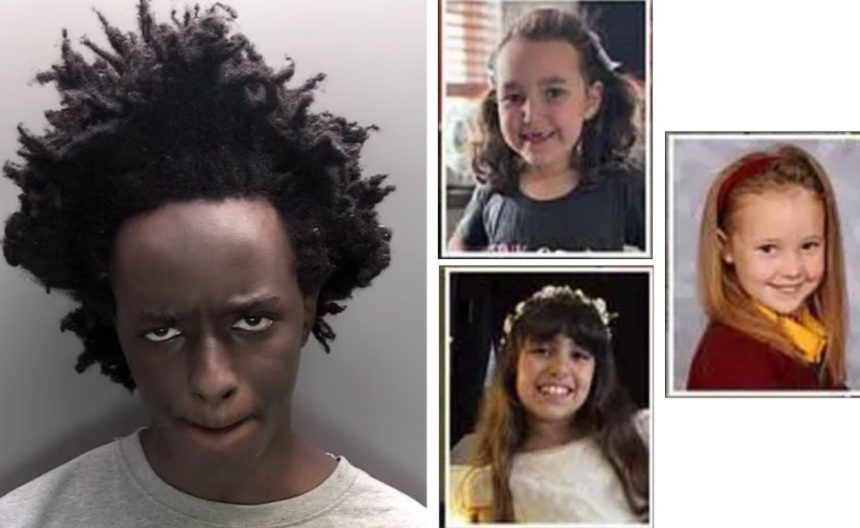Less than a year before his deadly attack at a children’s dance class, attempts to reintegrate Axel Rudakubana into school life had already fallen apart, an inquiry has heard.
Rudakubana, who had autism and a past record of bringing knives into school, had become increasingly isolated and violent at home in the months before the stabbings.
The inquiry was told that Lancashire County Council’s family-support team closed his case around ten months before the tragedy because they could not gain access to him, a move the barrister described as a “counsel of despair.”
At the heart of the case were three young victims: nine-year-old Alice da Silva Aguiar, six-year-old Bebe King, and seven-year-old Elsie Dot Stancombe, all fatally stabbed on 29 July last year during a Taylor Swift-themed dance class.
Presfield High School, which specializes in pupils with autism, raised an alert on 21 March 2023 after nearly a year without seeing Rudakubana.
His father, Alphonse, warned the school attendance team that the parents would “pay the price” if staff were to enter the home. His mother, Letitia, expressed irritation over the visit, saying she saw “no reason” for it and “flatly refused” to let them see her son.
An internal email among school staff read: “Short of breaking in, I don’t know how to see this kid.”
The local council’s child and family wellbeing service then took charge, hoping to address Rudakubana’s anxiety, isolation, and absence from school.
A home visit on 11 April by family support workers Ashleigh Williams and Sharon Barrett found him calm but withdrawn, seated in the same chair wearing headphones throughout the meeting.
He had stopped seeing the Child and Adolescent Mental Health Service (CAMHS), believing it served no purpose, and had abandoned school attendance altogether.
A CAMHS note by Catherine Morris described a “very strained” family dynamic, with parents struggling to set boundaries.
When inquiry barrister John Goss asked whether there was any sense that Rudakubana “had the potential to be violent,” Ms Williams replied: “The potential, yes, but it was seen as historical … because the family were telling us … that it’s not happening anymore.”
Years earlier, in December 2019, Rudakubana had carried a knife into school and attacked another pupil with a hockey stick. Mr Goss questioned whether that history should have prompted concern about “premeditated violence.”
Ms Williams said: “At the time, I wasn’t specifically thinking that … because he wasn’t showing those sorts of behaviors in that moment.”
By 2023, his attendance had collapsed, limited to just five hours a week and often none at all. He had stopped taking sertraline for anxiety, claiming it disrupted his sleep, and refused two follow-up visits in May.
A September meeting described him as having “poor mental health, doesn’t leave house, [and] has never wanted to engage with the service.”
It also noted: “He has voiced that he does not want the support and … doesn’t feel he needs any help at this time.” Shortly after, his case was closed.
Mr Goss remarked during questioning: “Saying there is nothing we can do in this situation was something of a counsel of despair, wasn’t it?”
Ms Williams explained that the case had been “stepped down” to the school and mental-health services to avoid “further damage” to family relationships and in hopes of allowing space for “a chance to take a breath and then engage.”
Six days before the fatal attack, mental-health services also closed their involvement with Rudakubana, almost a year since he had last been seen face-to-face.






